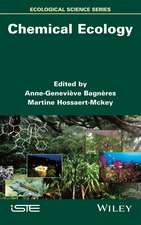Psychrophiles: From Biodiversity to Biotechnology
Editat de Rosa Margesin, Franz Schinner, Jean-Claude Marx, Charles Gerdayen Limba Engleză Paperback – 18 oct 2010
| Toate formatele și edițiile | Preț | Express |
|---|---|---|
| Paperback (1) | 1298.29 lei 39-44 zile | |
| Springer – 18 oct 2010 | 1298.29 lei 39-44 zile | |
| Hardback (1) | 813.92 lei 39-44 zile | |
| Springer Berlin, Heidelberg – 5 dec 2007 | 813.92 lei 39-44 zile |
Preț: 1298.29 lei
Preț vechi: 1708.28 lei
-24% Nou
Puncte Express: 1947
Preț estimativ în valută:
248.42€ • 260.76$ • 206.20£
248.42€ • 260.76$ • 206.20£
Carte tipărită la comandă
Livrare economică 07-12 aprilie
Preluare comenzi: 021 569.72.76
Specificații
ISBN-13: 9783642093715
ISBN-10: 364209371X
Pagini: 480
Dimensiuni: 155 x 235 x 25 mm
Greutate: 0.67 kg
Ediția:Softcover reprint of hardcover 1st ed. 2008
Editura: Springer
Colecția Springer
Locul publicării:Berlin, Heidelberg, Germany
ISBN-10: 364209371X
Pagini: 480
Dimensiuni: 155 x 235 x 25 mm
Greutate: 0.67 kg
Ediția:Softcover reprint of hardcover 1st ed. 2008
Editura: Springer
Colecția Springer
Locul publicării:Berlin, Heidelberg, Germany
Public țintă
ResearchDescriere
Most scientists in the middle of the twentieth century would probably not have believed that life was possible at extreme values of environmental factors, such as pH values close to 0 (e. g. sulfurous environments) or to 14 (e. g. soda lakes), sali- ties of 6 M NaCl (e. g. Dead Sea), hydrostatic pressures approaching 0. 1 MPa (deep sea) and temperatures exceeding 100°C (thermal vents or hot springs) or as low as –20°C (e. g. polar regions). Of the current studies on extremophiles, approximately 30,000 articles by the year 2007, almost two-thirds have been performed on org- isms adapted to outstanding temperatures, but much more attention has been paid to thermophiles than to psychrophiles. However, over the past 10 years, scientific publications on cold-adapted microorganisms have increased by a factor of ten. If one considers the extent of cold habitats, psychrophiles, i. e. cold-loving organisms, should largely lead in this comparison with thermophiles because a great proportion of the Earth’s biosphere never reaches temperatures above 5°C. Nearly three-quarters of the Earth is covered by oceans whose deep water masses, irrespective of latitude, are constantly between 2 and 4°C. The large continent of Antarctica also provides a permanently cold terrestrial environment as well as an aquatic niche in the surrounding ice that melts during the summer. Other examples of cold habitats are permafrost soils, high alpine soils, cold deserts, cold caves, marine sediments, snow, glacier and sea ice.
Cuprins
Boundary Conditions for Microbial Life at Low Temperatures.- The Climate of Snow and Ice as Boundary Condition for Microbial Life.- Limits for Microbial Life at Subzero Temperatures.- Microbial Diversity in Cold Ecosystems.- Bacteria in Snow and Glacier Ice.- Bacteria in Subglacial Environments.- Bacteria in the Deep Sea: Psychropiezophiles.- Bacteria in Permafrost.- Anaerobic Bacteria and Archaea in Cold Ecosystems.- Cyanobacteria in Cold Ecosystems.- Fungi in Cold Ecosystems.- Cold-Active Viruses.- Molecular Adaptations to Cold Habitats.- Membrane Components and Cold Sensing.- Cold-Shock Proteins.- Fundamentals of Cold-Adapted Enzymes.- Cryoprotectants and Ice-Binding Proteins.- The Role of Exopolymers in Microbial Adaptation to Sea Ice.- Genomic Analysis of Psychrophilic Prokaryotes.- Microalgae in Polar Regions: Linking Functional Genomics and Physiology with Environmental Conditions.- Metagenomics: Microbial Community Genomes Revealed.- Proteomic Studies of Psychrophilic Microorganisms.- Biotechnological Aspects.- Biotechnological Aspects of Cold-Adapted Enzymes.- Heterologous Protein Expression in Psychrophilic Hosts.- Cold-Adapted Fungi as a Source for Valuable Metabolites.- Natural and Stimulated Biodegradation of Petroleum in Cold Marine Environments.- Microbial Adaptation to Boreal Saturated Subsurface: Implications in Bioremediation of Polychlorophenols.- Biological Iron Oxidation and Sulfate Reduction in the Treatment of Acid Mine Drainage at Low Temperatures.
Recenzii
From the reviews:
"The new book Psychrophiles – from Biodiversity to Biotechnology … focusses on psychrophiles and describes, with cutting-edge knowledge, representative groups of cold-adapted micro-organisms as well as the habitats in which they live and the strategies they employ to cope with the cold. … This excellent book, which covers almost all fields of ‘cold’ microbiological research, matches current demands and trends in applied biotechnology. Furthermore, it is a valuable source of information to all those scientists interested in knowing what’s going on in the lab’s -80ºC freezer." (Ralph Schill, Lab Times, Issue 4, 2008)
"The new book Psychrophiles – from Biodiversity to Biotechnology … focusses on psychrophiles and describes, with cutting-edge knowledge, representative groups of cold-adapted micro-organisms as well as the habitats in which they live and the strategies they employ to cope with the cold. … This excellent book, which covers almost all fields of ‘cold’ microbiological research, matches current demands and trends in applied biotechnology. Furthermore, it is a valuable source of information to all those scientists interested in knowing what’s going on in the lab’s -80ºC freezer." (Ralph Schill, Lab Times, Issue 4, 2008)
Caracteristici
All chapters are written by leading scientists in their respective fields
Includes basic research results and applied biotechnological aspects
Includes basic research results and applied biotechnological aspects














